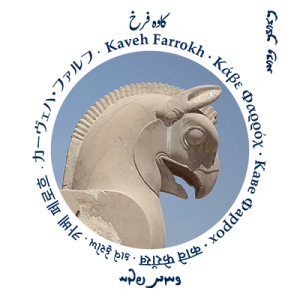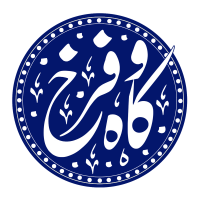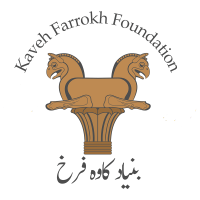As noted below, a recently detailed study of Rumi’s Iranian background and Persian cultural legacy was accomplished below:
http://www.archive.org/details/AStudyAboutThePersianCulturalLegacyAndBackgroundOfTheSufiMystics_323
I (Bahram Shahnazar) was emailed today by a person from Turkey who has written to me about Rumi and quoted Anne Marrie Schimme: “He was, as is claimed of Turkish origin.”(The Triumphal Sun: A Study of the Works of Jalaloddin Rumi, SUNY Press, 1993, p. 371) However, Schimmel is discussing Rumi studies in Turkey which claims Rumi as Turkish. Thus she is implicitly quoting the works of Turkish authors in Turkey about Rumi. This is clear from the context of those pages and section of the book which is titled:”Mowlana Jalal al-Din’s Rumi’s influence in the East and West” where the author discusses Rumi’s influences in various countries. On the pages about Turkey, Schimmel writes: “It is small wonder that the Turks were and still are extremely fond of Mowlana Jalal al-Din Rumi who took his surname Rumi, from the Romans e.g. Anatolian, area were his spent most of his life.”. Thus Schimmel is discussing the Turkish claim. But this claim is not accepted by Schimmel hereself who states: “..Turks are absolutely convinced that Mowlana was a Turk..Rumi’s mother tongue was Persian, but he had learned during his stay in Konya, enough Turkish and Greek to use it, now and then, in his verse” (Annemarie Schimmel, The Triumphal Sun: A Study of the Works of Jalaloddin Rumi, SUNY Press, 1993, p. 193). Schimmel in another book is very clear “A beautiful symbol of the duality that appears through creation was invented by the great Persian mystical poet Jalal al-Din Rumi, who compares God’s creative word..”( Annemarie Schimmel, “The Mystery of Numbers”, Oxford University Press,1993. Pg 49). Of course Schimmel was very cautious and sometimes she would state nothing is definitely known in history. But Schimmel cannot be contradicting herself and the Turkish person who sent me the email has misread the passage of Schimmel who is quoting Turkish works.
More importantly, the recent standard in scholarship on Rumi’s biography is the book by University of Chicago professor Franklin D. Lewis which is now the standard bible on Rumi’s biography and has been translated to many languages (including Persian, Turkish, European languages..).
Franklin D. Lewis, “Rumi: Past and Present, East and West: The life, Teaching and poetry of Jalal Al-Din Rumi”, Oneworld Publication Limited, 2008 pg 9: “How is that a Persian boy born almost eight hundred years ago in Khorasan, the northeastern province of greater Iran, in a region that we identify today as Central Asia, but was considered in those days as part of the greater Persian cultural sphere, wound up in central Anatolia on the receding edge of the Byzantine cultural sphere”
pg 21:”On the question of Rumi’s multilingualism (pages 315-317), we may still say that he spoke and wrote Persian as a native language, whole and conversed in Arabic as a learned “foreign” language, could at least get by at the market in Turkish and Greek(though some widely extravagant claims have been made about his command of Attic Greek, or his native tongue being Turkish).
Furthermore, Professor of Persian literature Franklin Lewis while criticizing the Turkish Ministry of Culture and a book by Mehmet Onder published by the Turkish ministry of culture . pg 549: “Therefore, we can only surmise about his cultural jingoism represents a conscious effort to rob Rumi of his Persian and Iranian heritage, and claim for Turkish literature, ethnicity and nationalism”.
We should note that besides 65,000 verses of Persian poetry, Rumi’s work has about 1000 verses of Arabic and less than a 200 verses of Greek/Turkish only in the Divan-i Shams. The Greek/Turkish verses occur for the most part in mixed verses (that is a verse of Persian and then Greek/Turkish to end the couplet).
Many proofs can be given that Rumi was a Persian:
1) Culturally, his predecessors whom he most refers to are Attar and Sanai, and his father’s Sufi orders traces their lineage exclusively through Persian Sufis to the Prophet of Islam
2) Sultan Walad, who is Rumi’s son, states several times that he does not know Turkish and Greek well. We note just like his father, 99% of the work of Sultan Walad is also in Persian. Franklin D. Lewis, “Rumi: Past and Present, East and West: The life, Teaching and poetry of Jalal Al-Din Rumi”, Oneworld Publication Limited, 2008. Pg 239” Sultan Valad elsewhere admits (SVE 3939) that he has little knowledge of Turkish”
The claim by Turkish cultural ministry that Rumi wrote in Persian, because it was “the convention of the day” is easily dismissed by the fact that the Friday sermons of Rumi (Majalis Saba’) are in Persian. Also the letters of Rumi to various people are in Persian (none in Turkish) which is compiled under the work called “Makatib (letters of correspondence)”. Also another important work of Rumi is the Fihi ma Fihi (In it whats in) where the book consists of Rumi’s spoken lecture noted. This is in a very colloquial Persian language (like the seven sermons to a large extend) and provides a proof of his everyday language. Thus both the religious sermons (which is not poetry) and lectures (in a very colloquial Persian), and the letters show that Rumi’s everyday language was Persian. A verse by Sultan Walad actually shows that Persian was understood language by the people of Konya (which hosted many Iranian refugees: see the link below)
3) All the conversations of Rumi with Shams , and others that are recorded and compiled by Aflaki (a hagiographer who was an early disciple one genera ration after Rumi) are in Persian. As an example, while comparing Greeks and Turks, Rumi notes:“when it is time for building, one must engage Greek laborers and when it is time for destroying something, Turkish hirelings. Indeed, the building of the world is assigned to the Greeks, whereas the world’s destruction is reserved for the Turks. God created the group of Turks so that they would destroy every building they saw, mercilessly and ruthlessly, and cause it to be demolished. And they are still doing so, and day by day until the Resurrection they will continue to destroy in this manner. In the end, the destruction of the city of Konya will also be at the hands of wicked Turks devoid of mercy.’ And this being the case, it turned out just as Mowlana said.”
Be that it may, this shows that Rumi was neither Greek or Turk as he views these two elements as a foreign element.
4) The Turkish claim on Rumi mainly hinges on the usage of the word Turk in the Divan (not Mathnavi which is of instructional nature). The words “Turk, Hindu, Rum, Zang (black)” in Persian mystical poetry and allusions when joined in same verses had a non-ethnic meaning and usually Turk was contrasted positively with Hindu. Thus Rumi for example sometimes calls himself a Hindu, sometimes a Turk, sometimes a Roman and sometimes a Zang (black). These were symbols for various types of allegories that are explained in the link below. As noted by the scholar de Brujin and many others, J.T.P. de Brujin, Hindi in Encyclopedia Iranica “In such imagery the link to ethnic characteristics is hardly relevant” and even Turkish scholars agree. As noted by the Turkish scholar Cemal Kafardar when quoting the Turkish scholar Golpiranli and such ethnonyms in the works of Rumi:”Golpiranli rightly insists that ethnonym were deployed allegorically and metaphorically in classical Islamic literatures, which operated on the basis of a staple set of images and their well recognized contextual associations by readers; there, “turk” had both a negative and positive connotations. In fact, the two dimensions could be blended: the “Turk” was “cruel” and hence, at the same time, the “beautiful beloved”(Kafadar 2007:23 fn 19)
5) The language of Rumi’s father again recorded in colloquial Persian displays a strong eastern Iranian element (Sogdian) and provides a demonstration of colloquial Persian in the region of Vakhsh.
6) We should note that when speak of Rumi being a Persian, we are not only concerned about his Iranian-linguistic (speaker of Iranian languages) background. Rather culture and legacy plays a more important role than any other factor, given the fact that the people of Iran, Turkey, Caucasus, Central Asia and etc.,(and virtually any other part of the world) are of mixed DNA background and there is no pure race. Thus given the fact that poetry is not translatable without losing meaning or context (although a very great translation of Masnavi has recently been introduced by the native Persian speaker Jawid Mojaddedi of Afghanistan), Rumi is permanently tied to the Persian language and culture. Works of scientists, mathematicians, etc., may be translated without losing its meaning, but that is not the case for poetry. With this regard, even a less biased Turkish scholar states: “Baha ad-din (Rumi’s Father) and his family eventually settled in Konya, ancient Iconium, in central Anatolia. They brought with them their traditional Persian cultural and linguistic background and found in Konya a firmly entrenched penchant for Persian culture. In terms of Rumi’s cultural orientation – including language, literary heritage, mythology, philosophy, and Sufi legacy –the Iranians have indeed a strongly justifiable claim. All of these are more than sufficient to characterize Rumi as a prominent figure of Persian cultural history”( Halman, T.S.(2007), “Rapture and Revolution”, Syracuse University Press, November., page 266).
7) A very extensive research on the Iranian (in the ethno-linguistic sense of Iranian peoples) background and legacy of Rumi has been recently accomplished:
http://www.archive.org/details/AStudyAboutThePersianCulturalLegacyAndBackgroundOfTheSufiMystics_323
wherein the author provides a definite response using many details of Rumi’s work to those who try to rob him of his Iranian background and Persian culture. I urge all Iranians to study the above in detail.
Thank you,
Bahram Shahnazar



